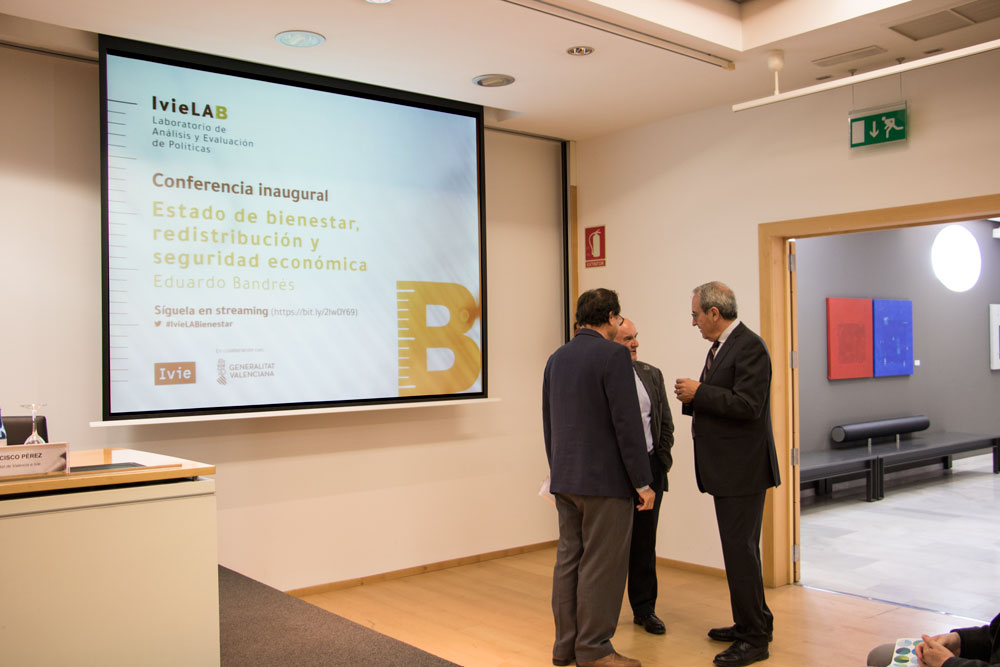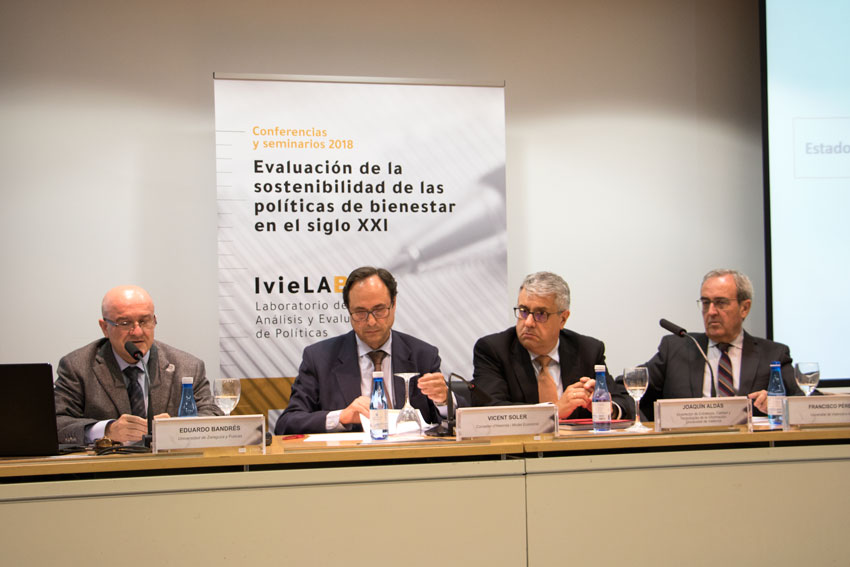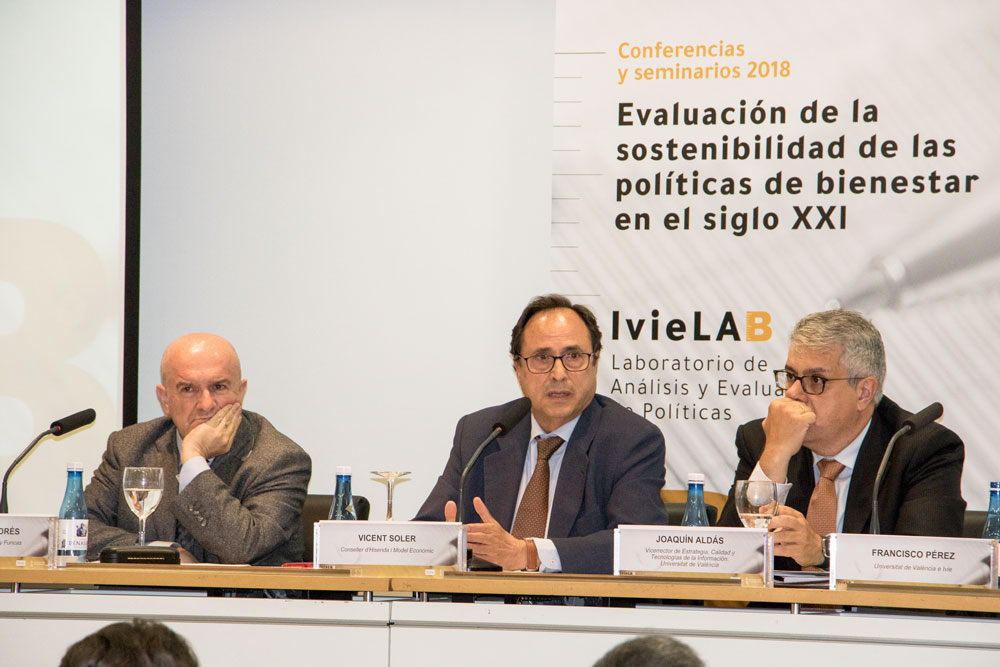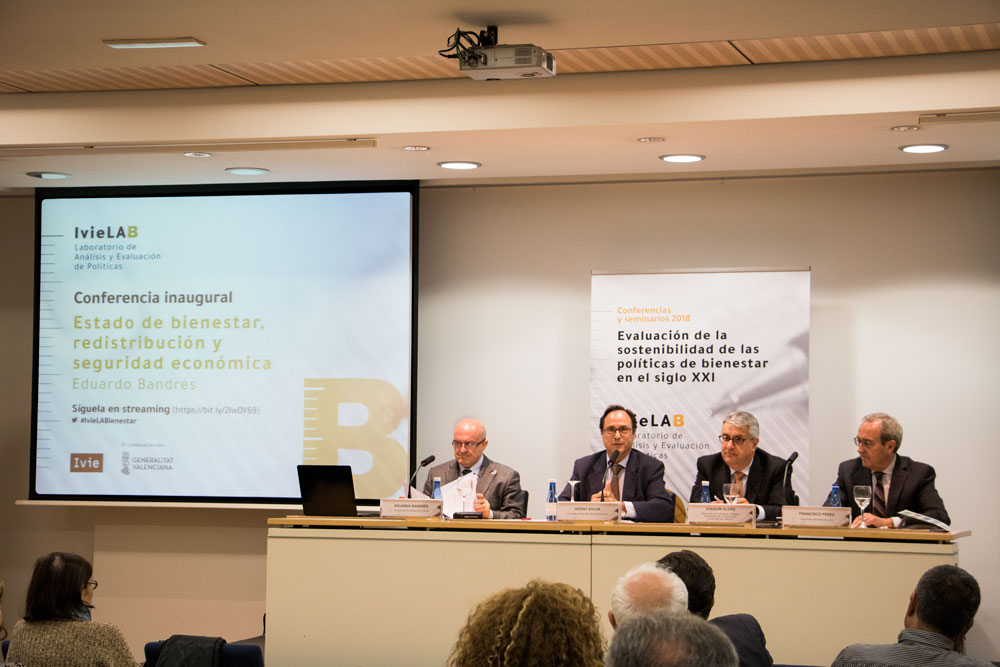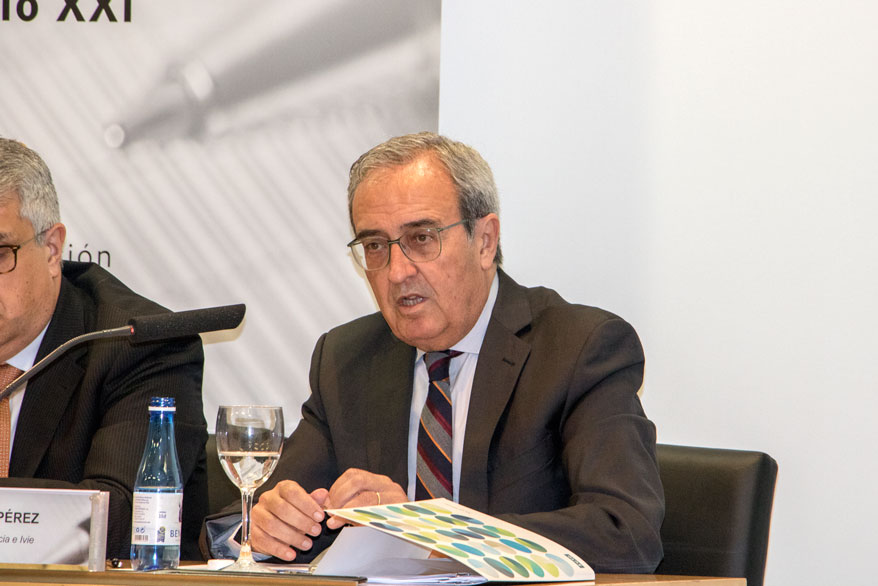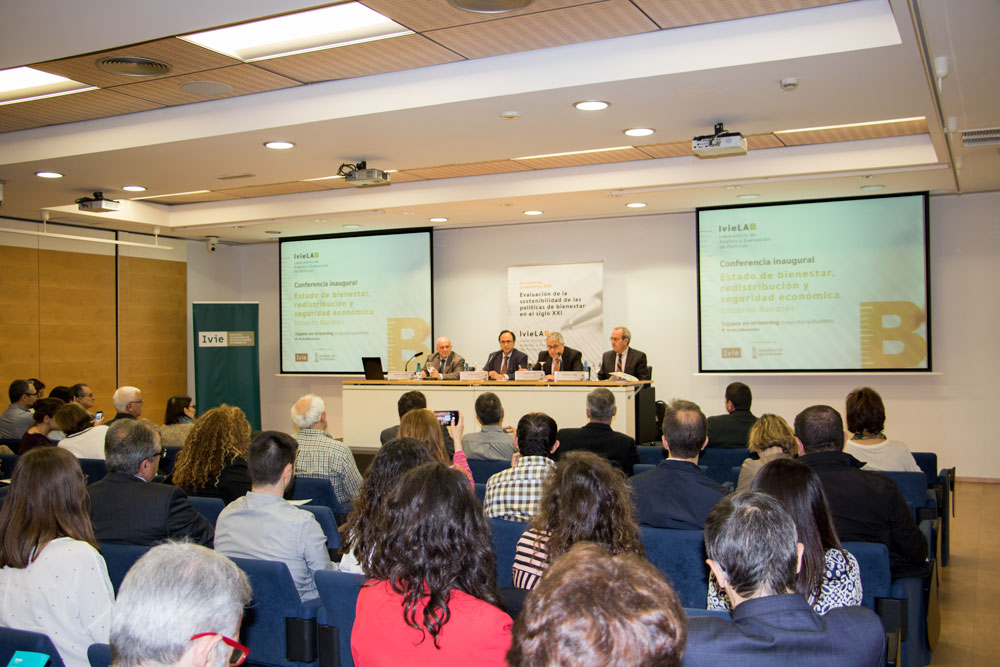News
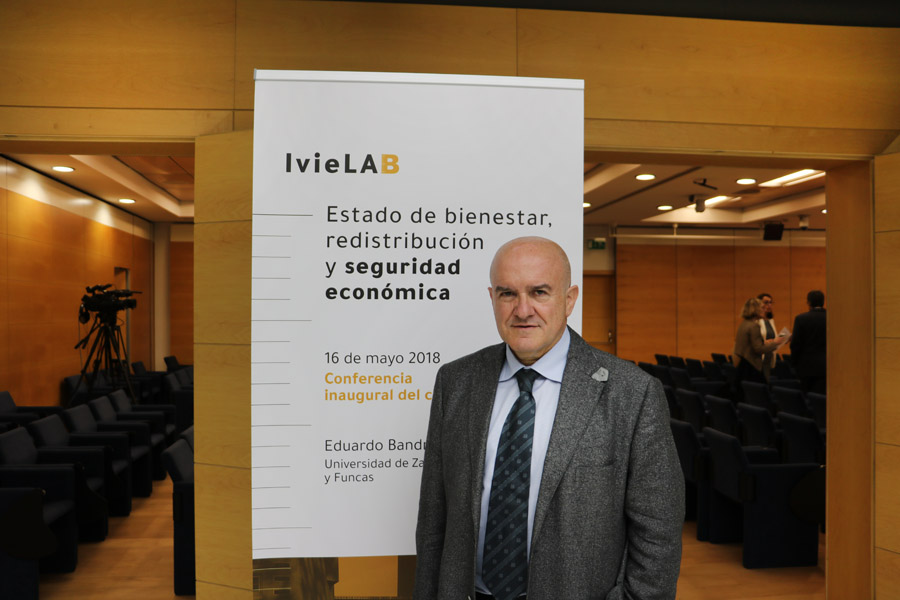
Eduardo Bandrés: “The protection system isn’t working for the 4.5 million people who live on less than 10 euros a day”
The IvieLAB’s first lecture analyses the welfare state’s redistributive mechanisms
The IvieLAB project (Laboratory for the Analysis and Evaluation of Public Policy) created by the Ivie in collaboration with the Valencian Regional Government, was presented yesterday with a lecture from Eduardo Bandrés, director of Public Economy and Welfare at Funcas and Professor at the University of Zaragoza. His talk centered on two aspects: income distribution through the tax-transfer system to reduce inequality, and the economic security that should guarantee the welfare state against the circumstantial risks of unemployment, illness, disability and old age. The lecture is part of the program of activities titled Evaluation of the sustainability of welfare policies in the 21st century, which includes seminars and lectures by experts and will run for the whole year.
According to Eduardo Bandrés, “the Spanish welfare state provides adequate protection for the retired and others receiving state benefits, whose income levels have remained stable throughout the crisis and for whom the poverty risk rate has fallen. In contrast, protection for young people and others of working age is insufficient, especially for the unemployed or those with insecure or irregular jobs”. Bandrés believes that the protection system is failing the 4.5 million people who are living on less than 10 euros a day. Of the Spanish citizens in the lowest income groups, the unemployed account for almost 29% (1.3 million), and those under the age of 16 (1.1 million) represent nearly 24%. Neither is the working population immune to this situation of poverty, with one million people with employment living on less than 10 euros a day (22%). The remaining percentage is divided between the retired, just 4% (fewer than 200,000 people) and others who are economically inactive.
The economist stated that the main problem is not only the policy of redistribution (which has at least been able to offset half the increase in inequality), but market income inequality among the active population resulting from unemployment and higher wage dispersion. “Given the importance of wage income in the overall income of the working age population, labor market regulation and collective bargaining processes must take into account their implications for the income sufficiency of salaried workers”, he added.
The lecture was introduced by the Regional Minister for Finance and Economic Model, Vicent Soler. Also present was the Vice-Chancellor of Strategy, Quality and Information Technologies at the Universitat de València, Joaquín Aldás. In addition, the Ivie’s Research Director, Francisco Pérez, presented the Laboratory for the Analysis and Evolution of Public Policy (IvieLAB), which has been created to study and aim to improve the actions of the public administrations, using new analytical methodologies and tools.
IvieLAB begins its activity with a program of lectures and seminars, Evaluation of the sustainability of welfare policies in the 21st century, which opened with the lecture by Eduardo Bandrés. Throughout the rest of the year, specialists will meet to analyze various aspects of the welfare state. The seminar The intergenerational economy and the challenges of the aging population will be held on 31 May, bringing together experts from the field of intergenerational transfer and pension systems, including Concepción Patxot, Guadalupe Souto, Enrique Devesa and José Antonio Herce.


